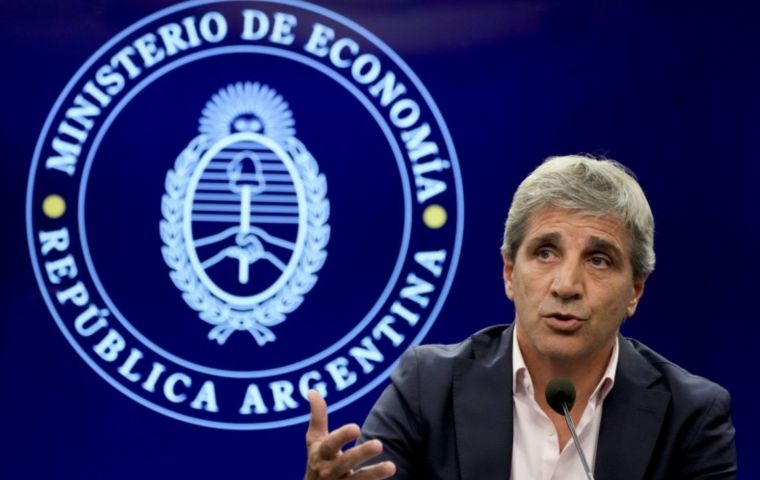MercoPress. South Atlantic News Agency
Argentina: Drop in retail prices expected soon
 Caputo agreed with executives from the main supermarket chains that imported goods would help lower the retail prices
Caputo agreed with executives from the main supermarket chains that imported goods would help lower the retail prices In line with President Javier Milei's chainsaw politics to curb inflation, Argentine supermarkets expect a drop in retail prices shortly once imported items arrive to compete with local production as agreed upon with the Economy Ministry in March, it was reported in Buenos Aires.
During the last two weeks of April and early May, prices in supermarkets have experienced a downward trend, particularly in items such as noodles (-12%), rice (-10%), sugar (-33%), beverages (up to -50% depending on the kind and brand), as well as flours and cooking oil.
Prices had soared in anticipation of more complicated exchange dynamics than the ones that actually happened, leading to a sharp drop in sales. Argentina's National Institute of Statistics and Census (Indec) February report showed that supermarket sales fell 11.4% year-on-year, while the drop in wholesale was 6.2%.
According to Presidential Spokesman Manuel Adorni, the products to show the new achievements will be bananas, potatoes, pork, coffee, tuna, cocoa products, insecticides, shampoos, and diapers. Other items such as various beer brands and pasta, are to reach Argentine shores in the next few days. The enlarged offer would thus bring down the prices and help control the country's rampant inflation.
Some 200 products will arrive in Argentina this year but will only become available once certain planning and validation formalities are completed. Groceries are to be imported mostly from Mercosur partners Brazil, Uruguay, and Paraguay.
“If businessmen would set prices at more reasonable levels, undoubtedly, they would sell at those prices and the economy would grow, we would have a surplus and we would lower taxes,” Economy Minister Luis Toto Caputo was quoted as saying this week. “They are reluctant to lower prices and people are not going to validate it,” he added. Caputo met in March with executives from Argentina's main supermarket chains to agree on the current course of action.
Indec's last Consumer Price Index (CPI) report showed an 11% increase in March for an accumulated 51.6% in the first quarter of 2024. Private analysts foresee April's figures below 10%. If this forecast is met, the indicator would be per the government's expectations and also the lowest since October last year, when it reached 8.3%.




Top Comments
Disclaimer & comment rulesCommenting for this story is now closed.
If you have a Facebook account, become a fan and comment on our Facebook Page!